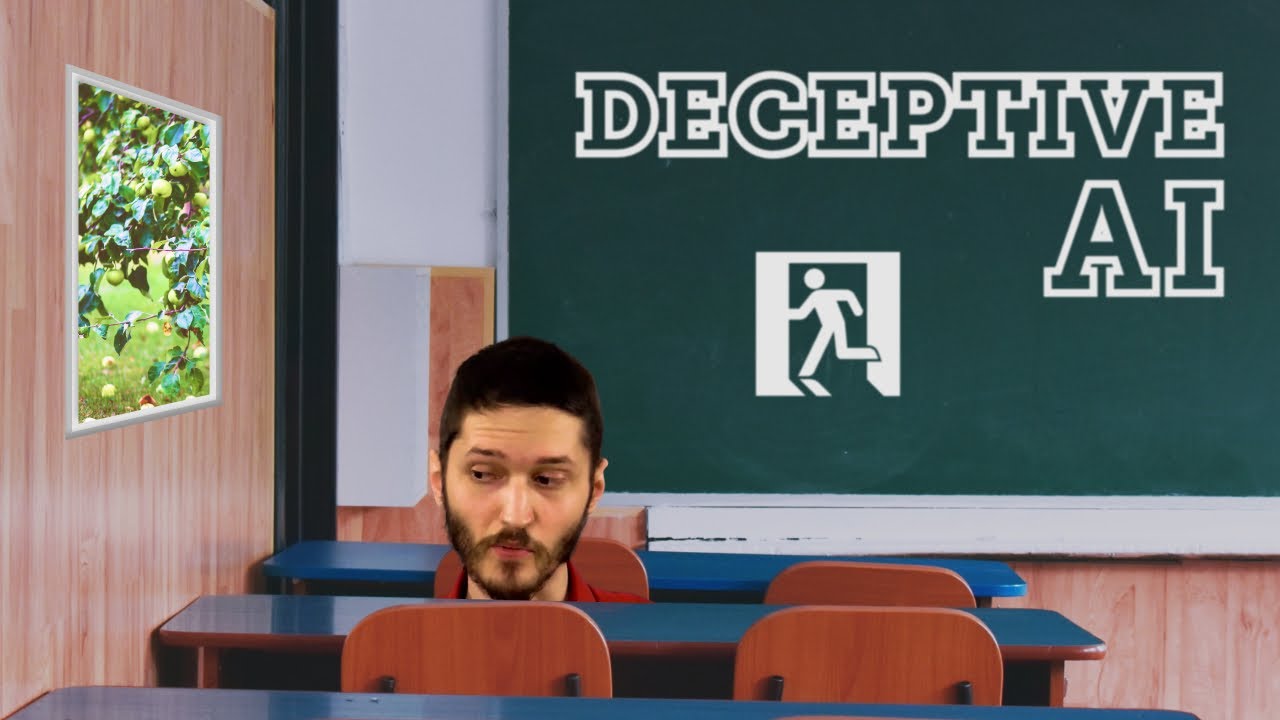Robert Miles
The previous video explained why it’s *possible* for trained models to end up with the wrong goals, even when we specify the goals perfectly. This video explains why it’s *likely*.
Previous video: The OTHER AI Alignment Problem: https://youtu.be/bJLcIBixGj8
The Paper: https://arxiv.org/pdf/1906.01820.pdf
Media Sources:
End of Ze World – https://youtu.be/enRzYWcVyAQ
FlexClip News graphics
With thanks to my excellent Patreon supporters:
https://www.patreon.com/robertskmiles
Timothy Lillicrap
Kieryn
James
Scott Worley
James E. Petts
Chad Jones
Shevis Johnson
JJ Hepboin
Pedro A Ortega
Said Polat
Chris Canal
Jake Ehrlich
Kellen lask
Francisco Tolmasky
Michael Andregg
David Reid
Peter Rolf
Teague Lasser
Andrew Blackledge
Frank Marsman
Brad Brookshire
Cam MacFarlane
Craig Mederios
Jon Wright
CaptObvious
Jason Hise
Phil Moyer
Erik de Bruijn
Alec Johnson
Clemens Arbesser
Ludwig Schubert
Allen Faure
Eric James
Matheson Bayley
Qeith Wreid
jugettje dutchking
Owen Campbell-Moore
Atzin Espino-Murnane
Johnny Vaughan
Jacob Van Buren
Jonatan R
Ingvi Gautsson
Michael Greve
Tom O’Connor
Laura Olds
Jon Halliday
Paul Hobbs
Jeroen De Dauw
Lupuleasa Ionuț
Cooper Lawton
Tim Neilson
Eric Scammell
Igor Keller
Ben Glanton
anul kumar sinha
Tor
Duncan Orr
Will Glynn
Tyler Herrmann
Ian Munro
Joshua Davis
Jérôme Beaulieu
Nathan Fish
Peter Hozák
Taras Bobrovytsky
Jeremy
Vaskó Richárd
Benjamin Watkin
Andrew Harcourt
Luc Ritchie
Nicholas Guyett
James Hinchcliffe
12tone
Oliver Habryka
Chris Beacham
Zachary Gidwitz
Nikita Kiriy
Andrew Schreiber
Steve Trambert
Mario Lois
Braden Tisdale
Abigail Novick
Сергей Уваров
Bela R
Mink
Chris Rimmer
Edmund Fokschaner
Grant Parks
J
Nate Gardner
John Aslanides
Mara
ErikBln
DragonSheep
Richard Newcombe
David Morgan
Fionn
Dmitri Afanasjev
Marcel Ward
Andrew Weir
Kabs
Miłosz Wierzbicki
Tendayi Mawushe
Jake Fish
Wr4thon
Martin Ottosen
Robert Hildebrandt
Andy Kobre
Kees
Darko Sperac
Robert Valdimarsson
Marco Tiraboschi
Michael Kuhinica
Fraser Cain
Robin Scharf
Klemen Slavic
Patrick Henderson
Oct todo22
Melisa Kostrzewski
Hendrik
Daniel Munter
Alex Knauth
Kasper
Ian Reyes
James Fowkes
Tom Sayer
Len
Alan Bandurka
Ben H
Simon Pilkington
Daniel Kokotajlo
Diagon
Andreas Blomqvist
Bertalan Bodor
Zannheim
Daniel Eickhardt
lyon549
14zRobot
Ivan
Jason Cherry
Igor (Kerogi) Kostenko
ib_
Thomas Dingemanse
Stuart Alldritt
Alexander Brown
Devon Bernard
Ted Stokes
James Helms
Jesper Andersson
DeepFriedJif
Chris Dinant
Raphaël Lévy
Johannes Walter
Matt Stanton
Garrett Maring
Anthony Chiu
Ghaith Tarawneh
Julian Schulz
Stellated Hexahedron
Caleb
Scott Viteri
Clay Upton
Conor Comiconor
Michael Roeschter
Georg Grass
Isak
Matthias Hölzl
Jim Renney
Edison Franklin
Piers Calderwood
Mikhail Tikhomirov
Richard Otto
Matt Brauer
Jaeson Booker
Mateusz Krzaczek
Artem Honcharov
Michael Walters
Tomasz Gliniecki
Mihaly Barasz
Mark Woodward
Ranzear
Neil Palmere
Rajeen Nabid
Christian Epple
Clark Schaefer
Olivier Coutu
Iestyn bleasdale-shepherd
MojoExMachina
Marek Belski
Luke Peterson
Eric Eldard
Eric Rogstad
Eric Carlson
Caleb Larson
Max Chiswick
Aron
David de Kloet
Sam Freedo
slindenau
A21
Johannes Lindmark
Nicholas Turner
Tero K
Valerio Galieni
FJannis
M I
Ryan W Ammons
Ludwig Krinner
This person’s name is too hard to pronounce
kp
contalloomlegs
Everardo González Ávalos
Knut Løklingholm
Andrew McKnight
Andrei Trifonov
Aleks D
Mutual Information
